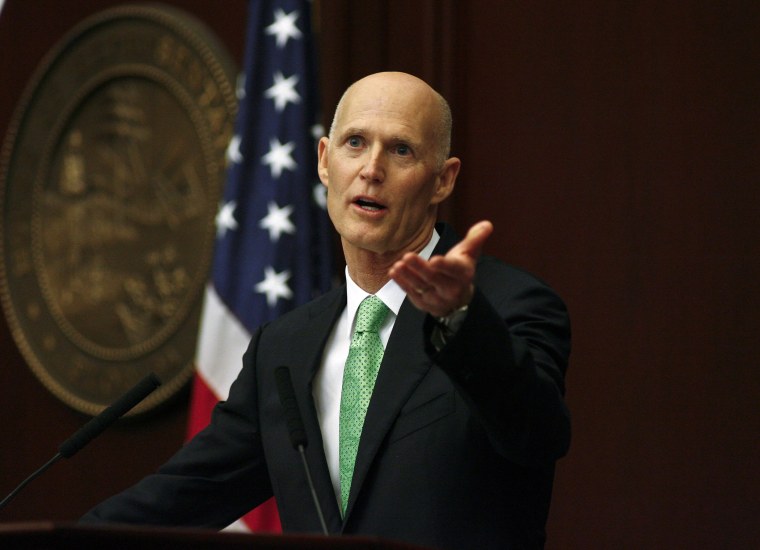After Donald Trump unveiled an expansive plan for coastal oil drilling last week, 14 governors -- including several Republicans -- denounced the policy. Only one of the 14 got a special deal: the Trump administration announced this week that Florida would be exempt from the policy.
By all appearances, the move seems to be a ham-fisted political scheme to help Gov. Rick Scott's (R) as-yet-unannounced Senate candidacy. Indeed, when Interior Secretary Ryan Zinke announced the special favor for the Sunshine State, he went out of his way to sing the praises of the state's Republican governor, celebrating his "leadership" -- twice -- in a statement that sounded more like a campaign endorsement than a policy announcement.
Zinke added, however, that the president believes "local voices count." If that's true, the administration is hearing from quite a few local voices right now. The Washington Post reported:
"We cannot afford to take a chance with the beauty, the majesty and the economic value and vitality of our wonderful coastline," South Carolina Gov. Henry McMaster (R), who backed President Trump in his state's competitive 2016 primary, said in a statement."Not Off Our Coast," North Carolina Gov. Roy Cooper (D) wrote in a tweet. "We've been clear: this would bring unacceptable risks to our economy, our environment, and our coastal communities."
They're not alone. Policymakers from both parties and both coasts were publicly outraged yesterday, and several suggested that the Trump administration's special treatment for Florida could have been affected by the president's real-estate holdings in the state.
"What else am I supposed to think?" Oregon Gov. Kate Brown (D) asked rhetorically.
What's more, as state attorneys general get ready to challenge the legality of Trump's coastal-drilling policy, the administration's carve-out for Florida -- coupled with its political defense for the exception -- is making things vastly easier for the policy's opponents.
"The Administrative Procedure Act requires there to be a reasonable rationale behind agency decisions, and that they can't be arbitrary and capricious," Michael Brune, the executive director of the Sierra Club, told the Washington Post, referring to a 1946 law governing major regulatory changes. "So, saying Florida is exempt because Rick Scott is straightforward and trustworthy? That Florida's coastlines are unique? That seems to be the definition of arbitrary and capricious."
While this plays out, and states demand equal treatment from the White House, I can't help but wonder if Rick Scott will actually benefit from Trump's special favor. To be sure, many Floridians probably don't want oil drilling off their shore, and if the governor is perceived as having protected his state's coastline -- even if his efforts were superficial -- it stands to reason Scott will get some kind of boost.
That said, the public tends to be repulsed by corrupt deals. It's therefore conceivable that by trying to help the Florida governor, Trump World may have inadvertently tarnished him.
